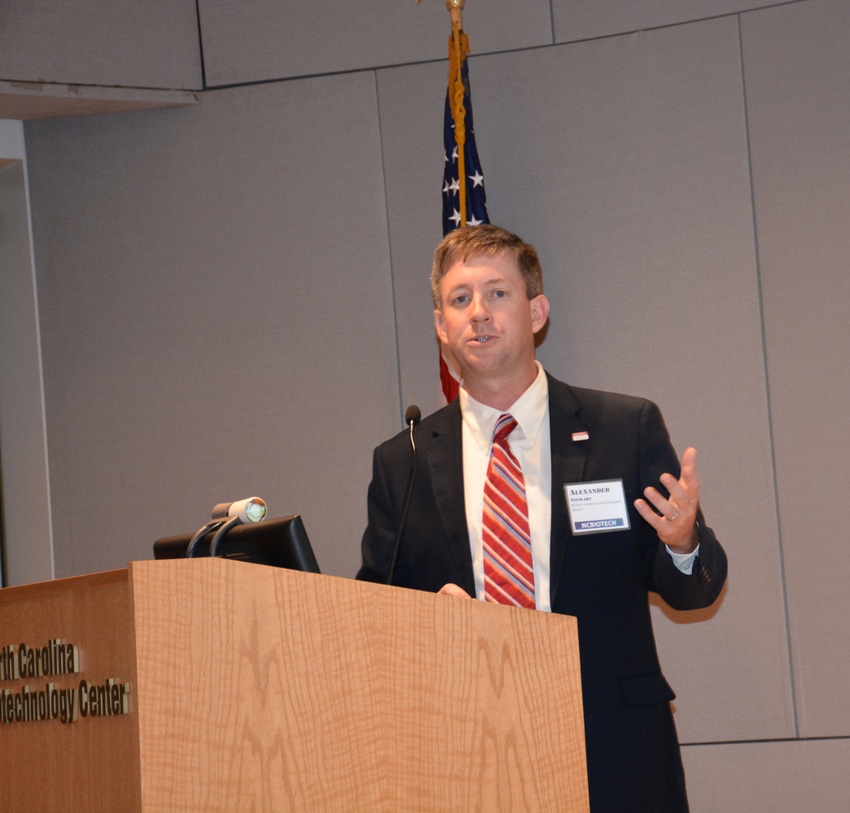
Real Time Kinematic (RTK) satellite navigation offers real advantages over standard GPS signals because it is more precise and it is repeatable.RTK gives farmers sub-inch accuracy in planting seeds or applying crop protection products. RTK is the most precise guidance system available to farmers today.

Precision agriculture tools such as Real Time Kinematic (RTK) satellite navigation will go a long way in helping farmers remain competitive, improve efficiency and increase yields as they work to feed a growing world population, says Sandy Stewart, director of the Research Station Division of the North Carolina Department of Agriculture & Consumer Services.
Speaking at a forum on precision agriculture held at the North Carolina Biotechnology Center in Research Triangle Park on July 16, Stewart said that by 2050, the global middle class is projected to grow from 1 billion to 3 billion. “This will require farmers to at least double their yields to meet the increasing demand,” Stewart said.
Precision agriculture is a must for farmers to achieve that goal, Stewart stressed.
Stewart said RTK offers real advantages over standard GPS signals because it is more precise and it is repeatable. RTK gives farmers sub-inch accuracy in planting seeds or applying crop protection products. RTK is the most precise guidance system available to farmers today.
RTK uses carrier phase measurements of the GPS signals where a single reference station provides the real-time corrections to a rover vehicle such as a tractor. The RTK system consists of a local base station near the field or farm that transmits corrections to a receiver on the tractor.. The base station monitors the constellation of GPS satellites and continuously calculates a position.
In North Carolina, farmers receive their RTK correction signal through the North Carolina Geodetic Survey’s Continuously Operating Reference Station (CORS). This signal is beamed to a farmer’s tractor, and the farmer pays a subscription fee for the service.
“Our farmers in North Carolina who use CORS have a great advantage over farmers in other states because farmers in other states have to get that correction signal off a base station that they put up on their own farm. These base stations are very expensive, costing anywhere from $18,000 to $20, 000,” Stewart said.
In North Carolina, farmers don’t need to set up a base station, thanks to CORS.
Stewart said precision agriculture tools such as RTK better enable farmers to apply seed or crop protection protects at the right time, right place and appropriate level. “Precision agriculture helps us know where we are, it helps us know when were there, and hopefully we can use that information to know what should be done,” Stewart said.
Want access to the very latest in agriculture news each day? Subscribe to Southeast Farm Press Daily. It’s free!
About the Author(s)
You May Also Like





